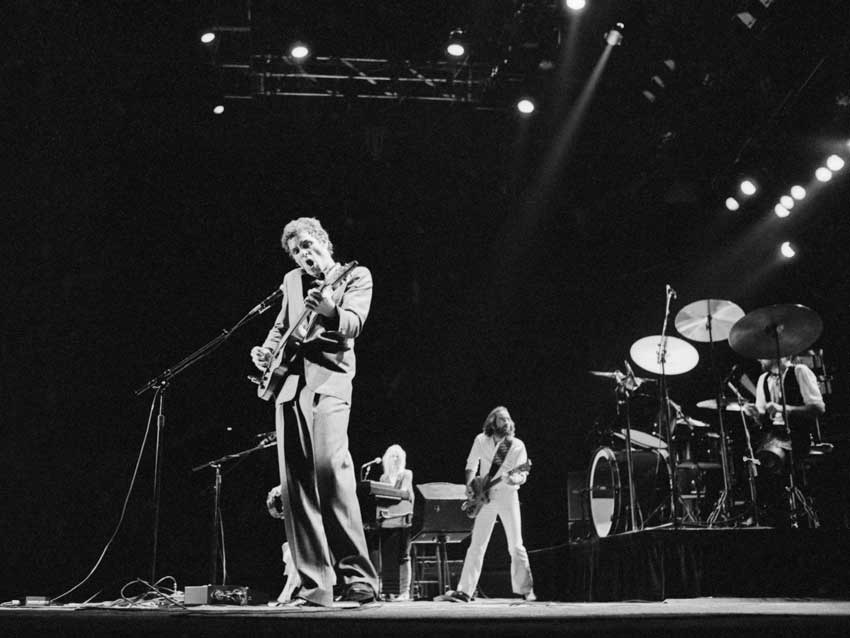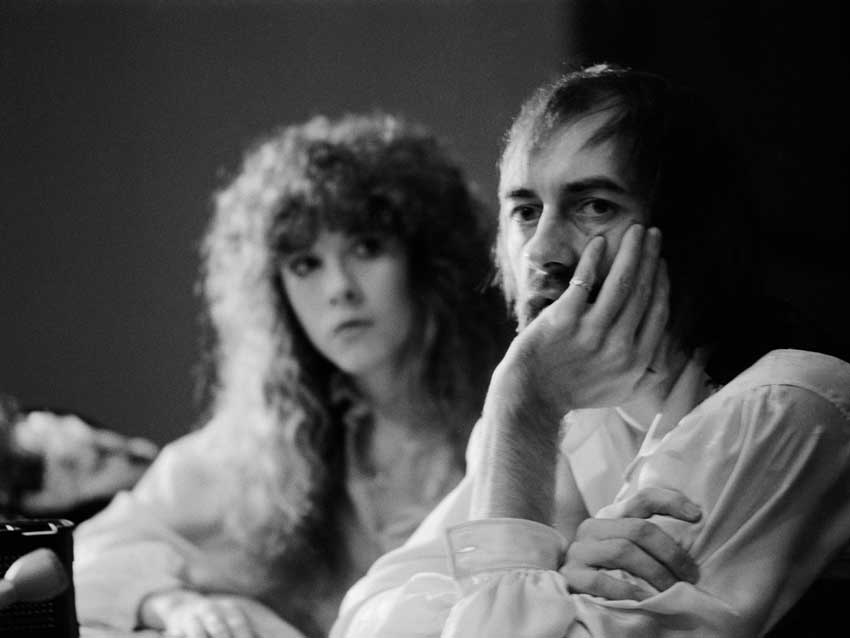7 great drum tracks by Mick Fleetwood
The Mac legend's greatest moments

Mick Fleetwood
Mick Fleetwood’s on the cover of the new Rhythm - out now and available here - talking about his famously musical approach to his drum parts for the legendary Fleetwood Mac. So, we've rounded up seven of our favourite Mick drum parts for your delectation.
Enjoy, and check out the full interview with the great British drum star in this month's Rhythm!

The Chain
For a certain generation The Chain is still synonymous with revving car engines, after it was used as the theme tune to the BBC's F1 coverage.
But before that familiar bassline kicks in we've had two thirds of the track - with its silvery, western guitar sounds and a drum track with Mick playing the kick on 1 and 3 during a half-time feel, before the whole kit comes in for the choruses, placing the snare on 1 and 3 to create a driving feel.
After a short but musically perfect drum break, the bassline comes in and Mick builds to a driving, ride-based eighth-note feel to fade. A great example of how Mick used the drums always to musical effect to enhance the band's music.

Go Your Own Way
The guitar part at the beginning of this classic Rumours hit can give a conflicting impression of where the pulse lies, sounding more complex than the track really is. In fact, it’s 4/4 all the way, with Mick’s syncopated drums entering at the beginning of bar 6.
The tom hits in the verse provide a musical pattern, with Mick’s famously ‘back to front’ toms inspiring him to choose interesting beat placements. Towards the end, the drums change to a more driving pseudo double-time feel with both snare and bass drum on all four quarter-notes.

Tusk
The follow up to Rumours - incredibly, the band’s 12th album - was a double LP, and at the time the most expensive rock album ever made, costing $1m. Derided at the time for its excess, the album stands up today as a classic.
The Buckingham-penned title track is a drum feature, taking its cues from African-inspired rhythms. The jungle beat is, as Mick himself says, “a Mick staple diet” - the track had begun life as a jam, until Mick got the idea to put the University Of Southern California marching band on it.
The tribal tom groove is the motif throughout the piece, and Mick gets a rare opportunity to solo in the middle, too. It's something of a bonkers breakdown, truth be told - “a cacophony of loops and madness,” in his words.

Oh Well Part 1
Oh Well kicks off with percussion, shakers and cowbell, before original guitarist/vocalist Peter Green trades quick blues licks with the solid, grooving rhythm section of McVie and Fleetwood.
When the track picks up pace, it's a pounding rock shuffle that stops and starts as required of the song form. Another fine example of not only Fleetwood’s touch and deft way with a rock shuffle groove, but also his knowing just when and what to play for the song.

Black Magic Woman
Santana's 1970 hit cover may be the best-known version, but this Peter Green track from 1968 was a sublime exercise in blues rock and in later live sets would almost always kick off a mid-set jam.
Mick’s tribal beat helps the Latin feel along (it was already a perfect fit for Santana’s Latin groove even before he got hold of it). The beat could be described as minimal tom and kick with a snare on 4, and extremely sparing crashes, fading out with a busier shuffle. And yet, as always, try imagining the song with anything else!

Dreams
A great drum intro from Mick, copped from Al Green’s drummer, and what Mick refers to as 'greasy music'. "It has a real feel, and it's lazy, behind the beat - stupidly simple but well thought-out”.
It’s an infectious groove with a number of such 'greasy’ fills throughout, framing one of Stevie Nicks’ best tunes. And it proves that Mick has a pocket just as deep as any funky drummer.

Werewolves Of London
Fleetwood and Mac were called in to play on the LA singer-songwriter's most famous song, from his 1978 album Excitable Boy, and Mick’s stamp is firmly placed on the track’s intro - a simple yet perfect drum intro that's up there with the most recognisable in music.
What follows is a funky, syncopated rock beat with well-placed crashes and a handful of sparing yet as-always perfect musical fills - increasing in frequency as Waddy Wachtel's southern-rock guitar stylings see the track to its fade. And the whole shebang feels naturally locked in with McVie's grooving bass part.

Want more?
Read the exclusive interview with Fleetwood Mac legend Mick Fleetwood in August’s Rhythm, which you can get hold of here. And Mick talks about his 11 favourite recordings here.